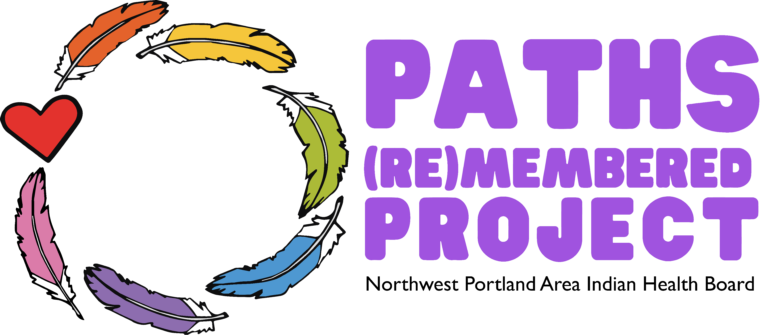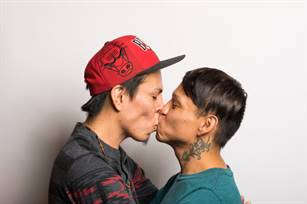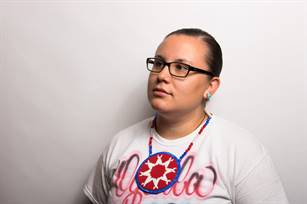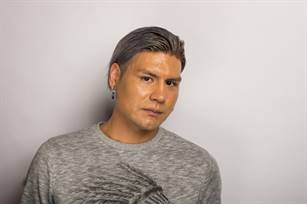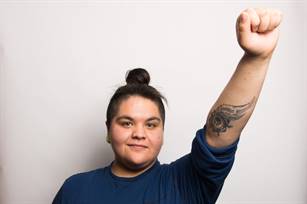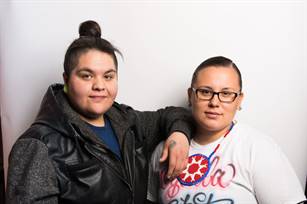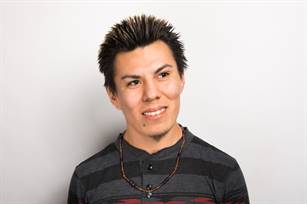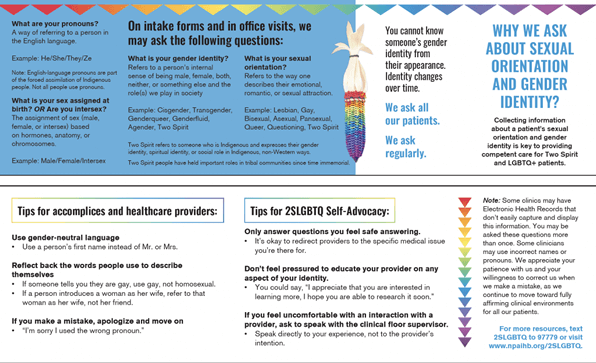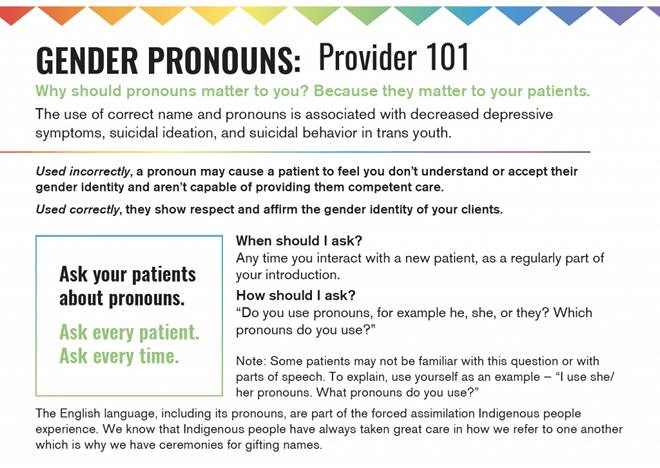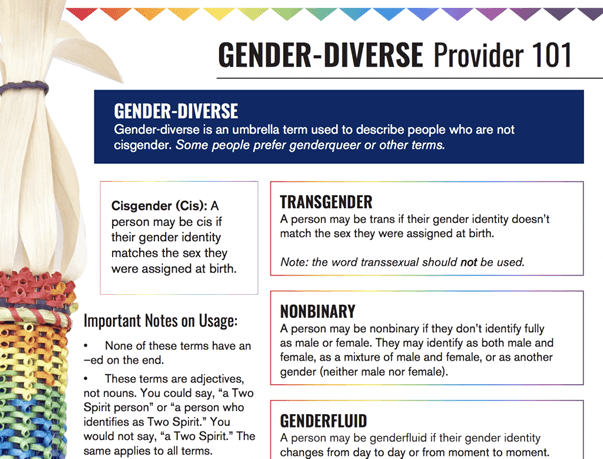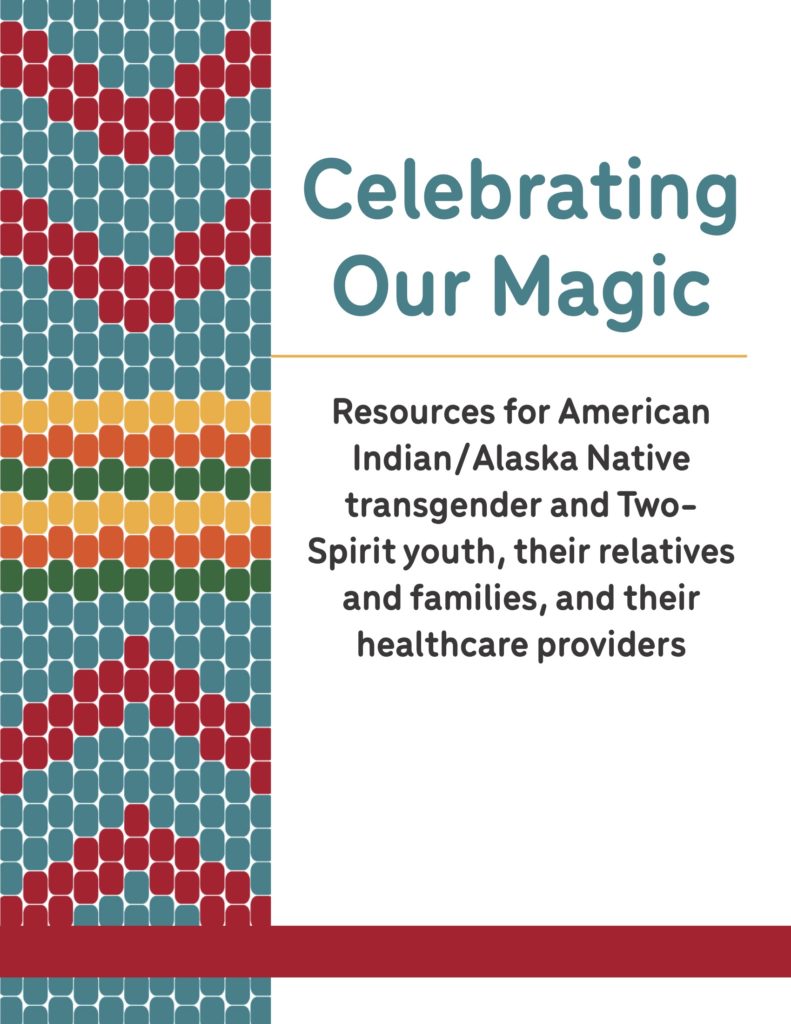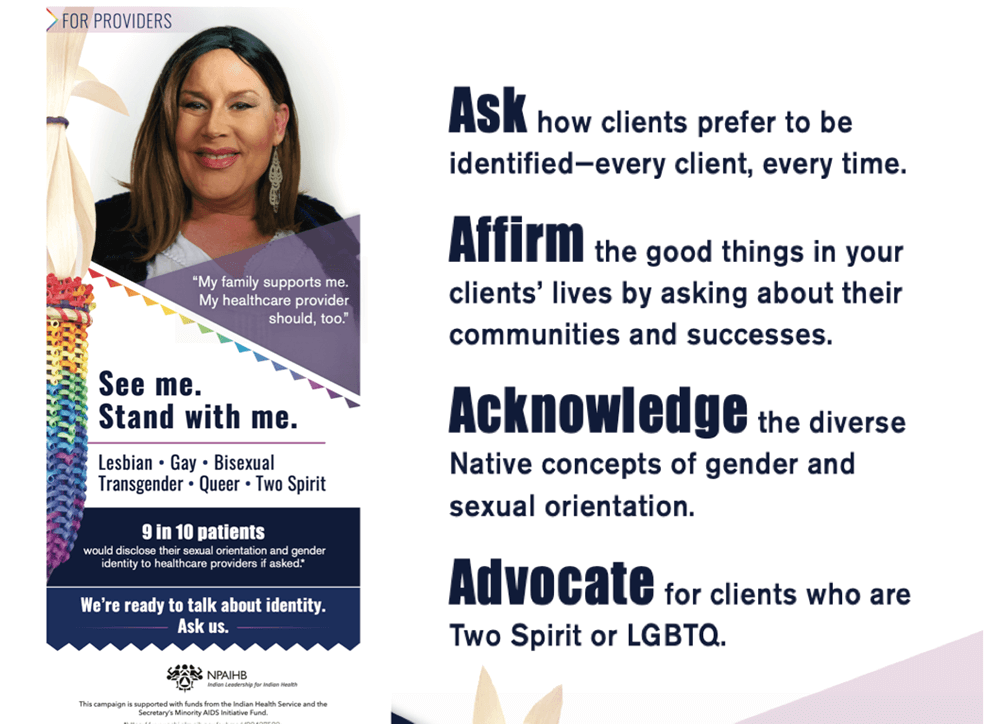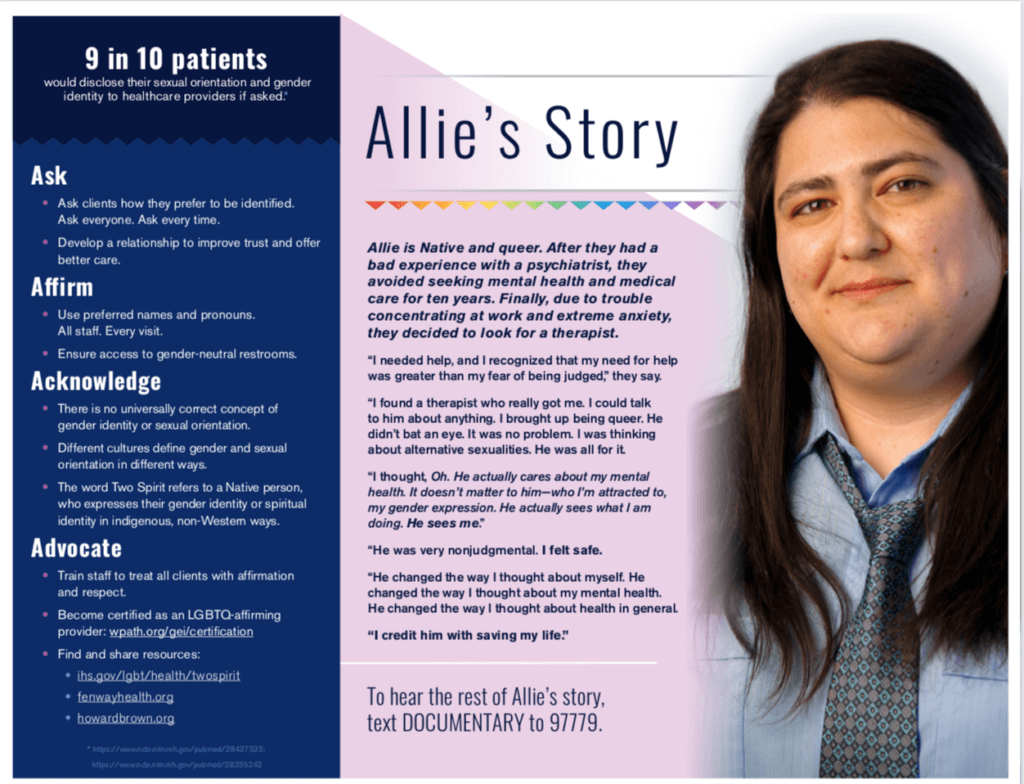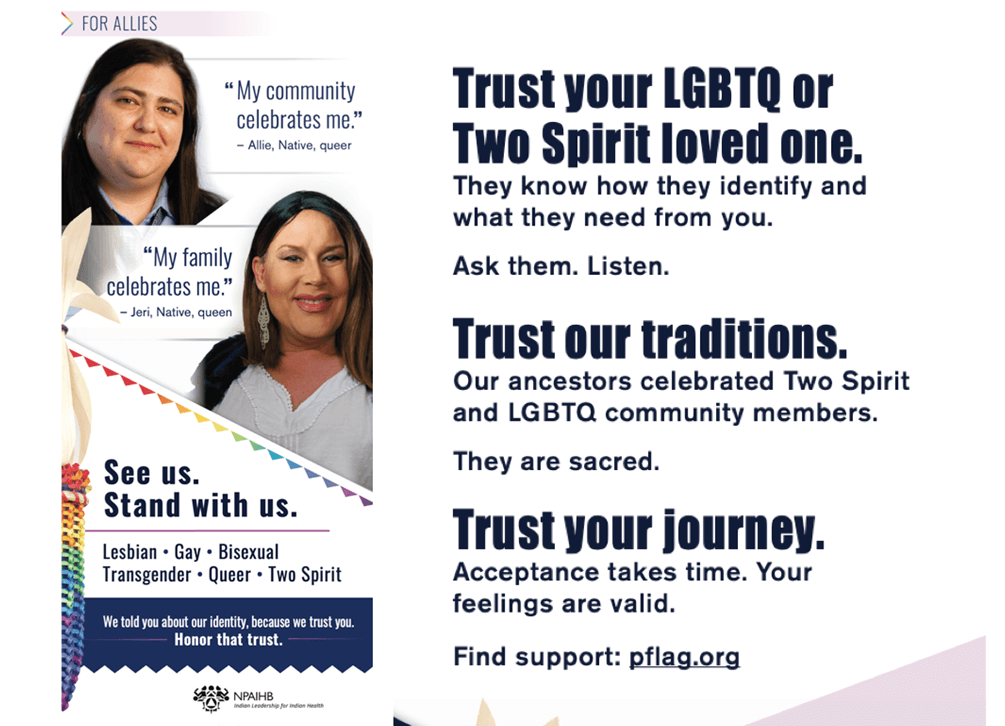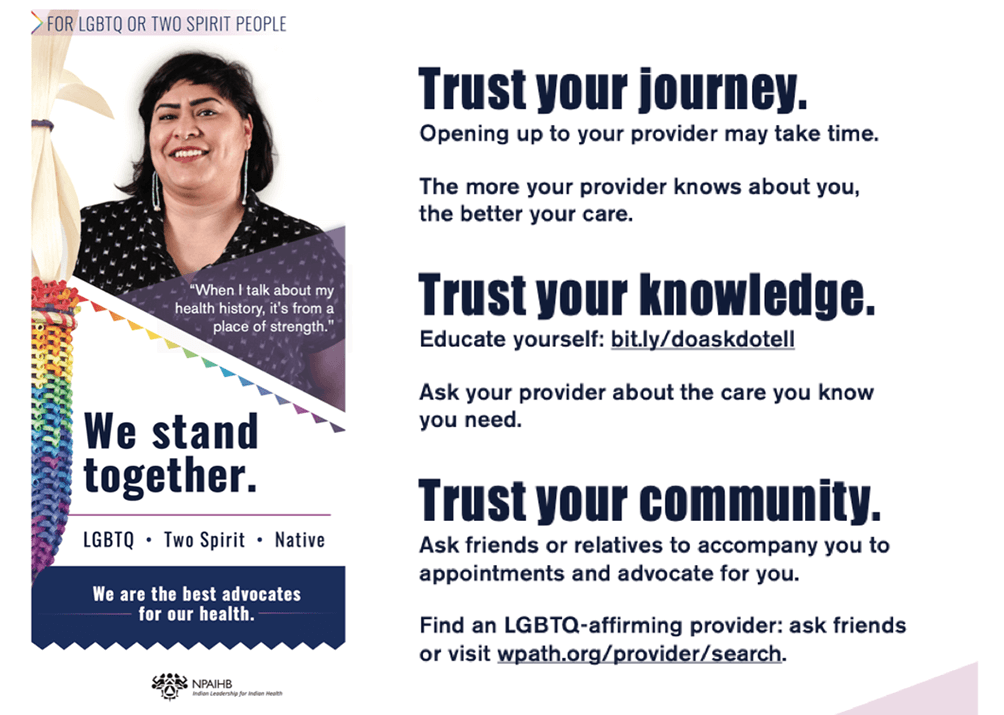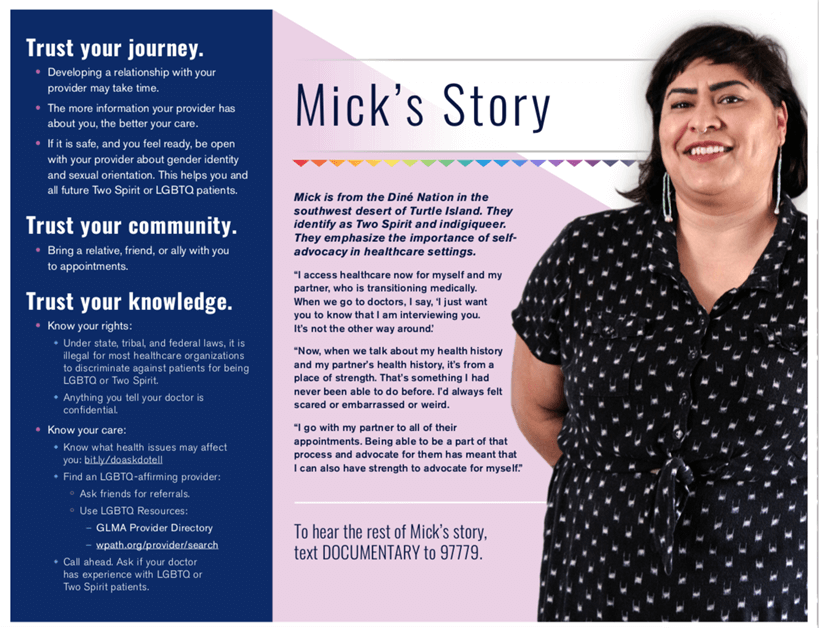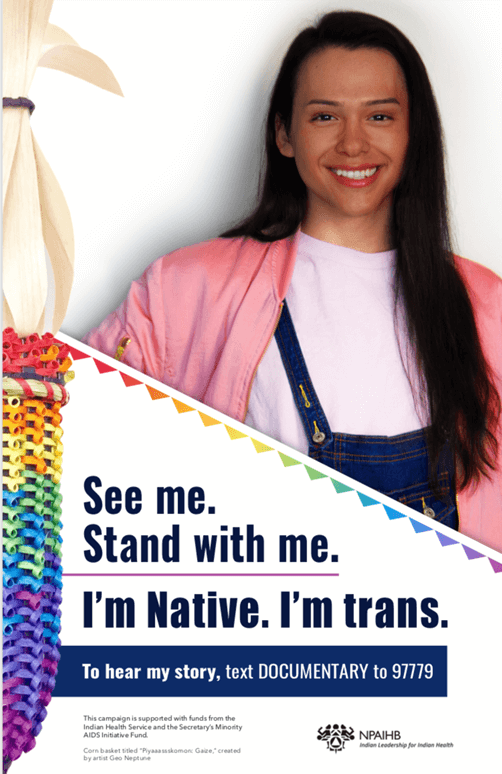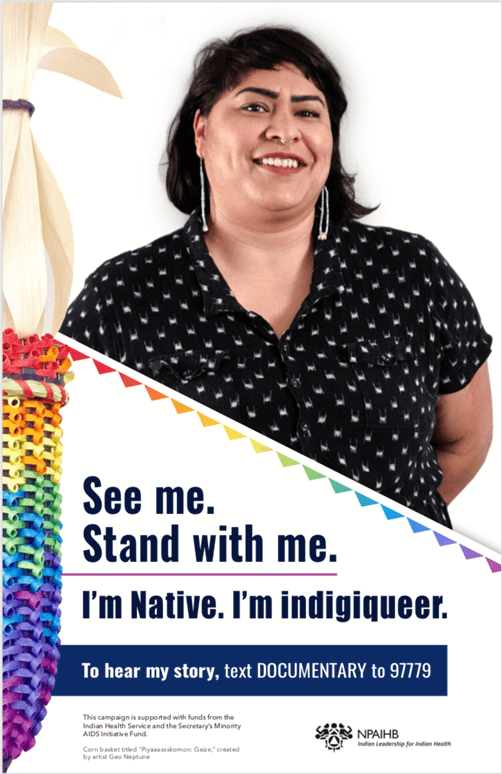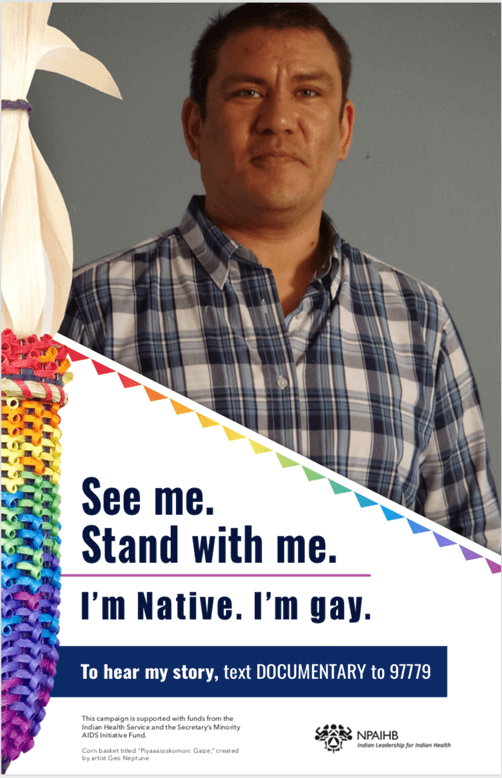To learn more about Two Spirit and LGBTQ+ Health, text "LGBTQ2S" to 94449
Roller derby champion. Activist. Cyclist. Follow three indigenous members of the Two Spirit and LGBTQ community as they journey toward self-acceptance, supportive healthcare, and communities that celebrate them.
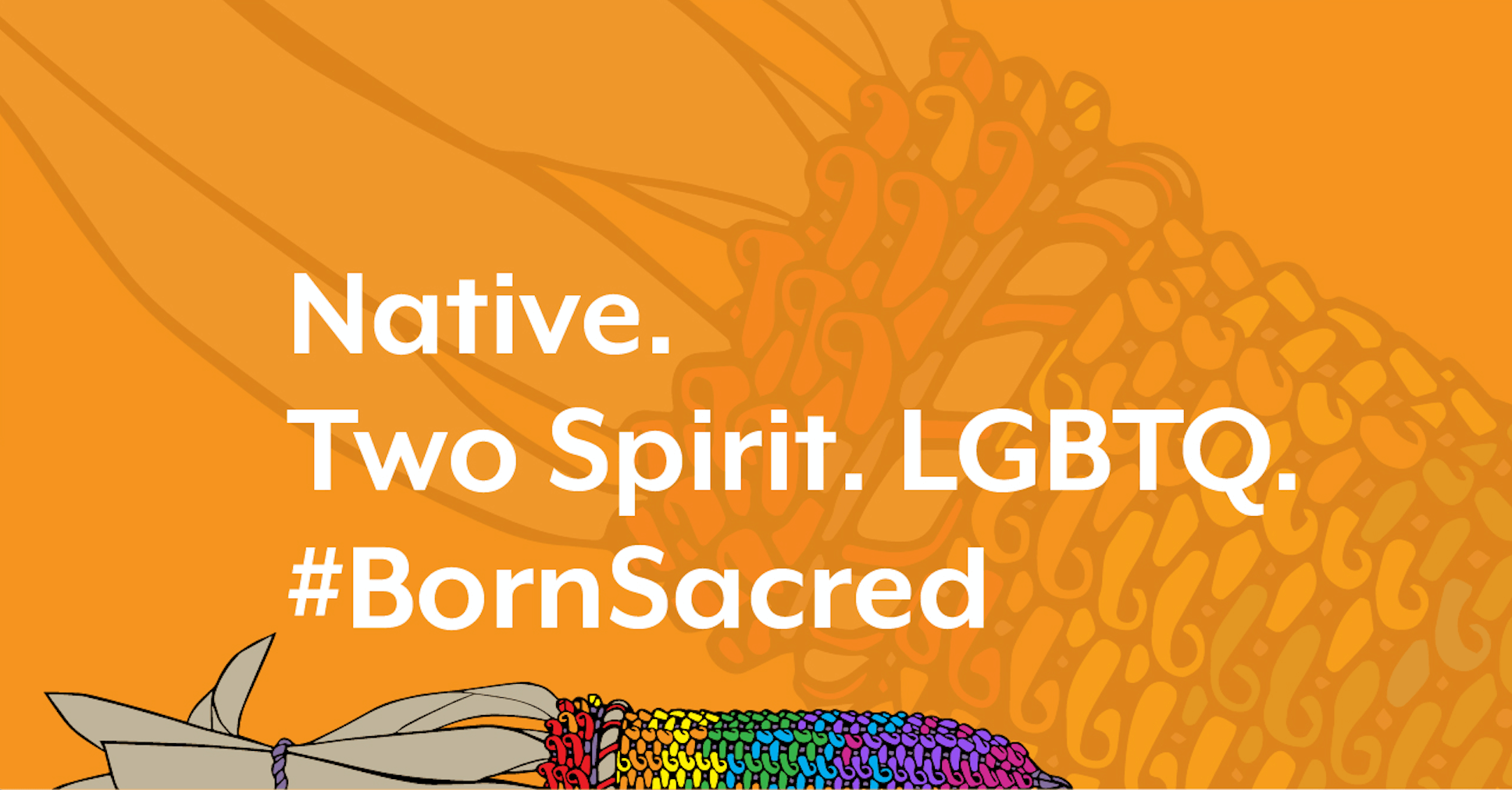
Featured
Our community is like a dreamcatcher. We need every strand.
Young? Native? Transitioning?
Resources to help you advocate for your health
Resources
Finding a provider who understands Two Spirit or LGBTQ experiences can be tough. These resources can help.
- World Professional Association of Transgender Health: Provider Search
- Providers must agree to uphold standards of care laid out by WPATH for transgender and gender nonconforming individuals
- GLBT Near Me
- Find providers, hairstylists, hotels, and hotlines.
Note: The providers listed are self-identified and not always verified. These organizations cannot guarantee a good experience.
For Two-spirit People:
- Bay Area Two Spirit Society:
- Organization to restore and recover the role of Two- Spirit people
- Montana Two Spirit Society:
- Organization advocating and educating the Montana LGBTI community and general community about Two Spirit issues, histories and traditions.
- Northeast Two Spirit Society:
- Regularly updated blog, reporting on news, culture, and daily life of Two Spirit people in northeastern states.
For Native Two Spirit and LGBTQ Youth:
- Indigenizing Love Toolkit:
- Two Spirit leadership profiles and activities to help create communities of young Native Two Spirit and LGBTQ people and their allies.
Health Resources
- Center for Excellence for Transgender Health:
- Resources regarding HIV prevention, cultural competency, mental health, and policy pertaining to transgender health
- SAMHSA Two Spirit Webinars:
- Webinars from SAMHSA’s Tribal Training and Technical Assistance Center, addressing Two Spirit and transgender identities in Native American/Alaska Native communities.
- National Alliance on Mental Illness: LGBTQ
- Addresses mental health disparities and finding a mental health provider as an LGBTQ person.
You are protected from harassment and discrimination by tribal, state, and federal laws. These resources can help you learn more.
- ID Documents Center:
- Information to help you change gender on legal documents
- Legal and identity documents:
- Information about changing gender on legal identity documents
- When Healthcare Isn’t Caring
- Summary report on healthcare access and discrimination from Lambda Legal
- Transgender Law Center:
- Health and legal resources for transgender people and allies
- Tribal Equity Toolkit 3.0:
- A toolkit with sample tribal resolutions and codes for LGBTQ equality
Art:
- Two Spirit Documentary:
- Documentary explores the spiritual nature of gender and real-world examples.
Literature:
- Not vanishing. Press Gang Pub, 1988.
- Collection of poetry written about two-spirit, lesbian, and Native themes.
- Driskill, Qwo-Li, Daniel H. Justice, Deborah A. Miranda, and Lisa Tatonetti. Sovereign Erotics: A Collection of Two-Spirit Literature. , 2011. Print.
- A collection of works written by Indigenous Two-spirit and queer people.
- Driskill, Qwo-Li. Asegi stories: Cherokee queer and two-spirit memory. University of Arizona Press, 2016.
- Novel about Cherokee history written from a post-colonial lens.
- Rifkin, Mark. 2012. The Erotics of Sovereignty: Queer Native Writing in the Era of Self-Determination. Minneapolis: University of Minnesota Press.
- A novel about how the policy of self-determination innacted in 1970 has impacted contemporary queer Native writers.
- Roscoe, Will. 1988. Living in the Spirit: A gay American Indian anthology. New York: St Martin’s Press.
- A book combining personal accounts, stories, and poetry regarding the complexity of queer Native history.
- Webber, Storme. Blues Divine. RiverShe Collective Arts, 2015.
- A collection of poetry derivative of music and spoken tradition. Contains Native and queer themes.
The Board is staffed with approximately 45 individuals, the majority of whom have BA/BS or advanced degrees and training to meet the needs of diverse activities provided to the tribal health programs of the 43 NPAIHB member tribes. The EpiCenter has four core purposes: Administrative, Data Management/Analysis, Training, and Research. The NPAIHB organizational chart outlines the managerial structure.
From early in the history of the NPAIHB, the Northwest Tribes recognized that data, surveillance, and research were central to building awareness about health disparities afflicting American Indians and Alaska Natives. The Northwest Tribal EpiCenter has successfully engaged Northwest tribes in collaborative research and surveillance activities and, as a result, serves as an essential resource for these tribes for tribal health data and health information services support, including capacity building. All data from such activities belong to the tribes involved in the research. In addition, the NPAIHB hosts the Portland Area IHS Institutional Review Board (IRB), which oversees protection of human subjects in research occurring in Northwest Indian communities.
Over 190,000 American Indians/Alaska Natives reside in Oregon, Washington, and Idaho, representing 6.3 percent of the United State

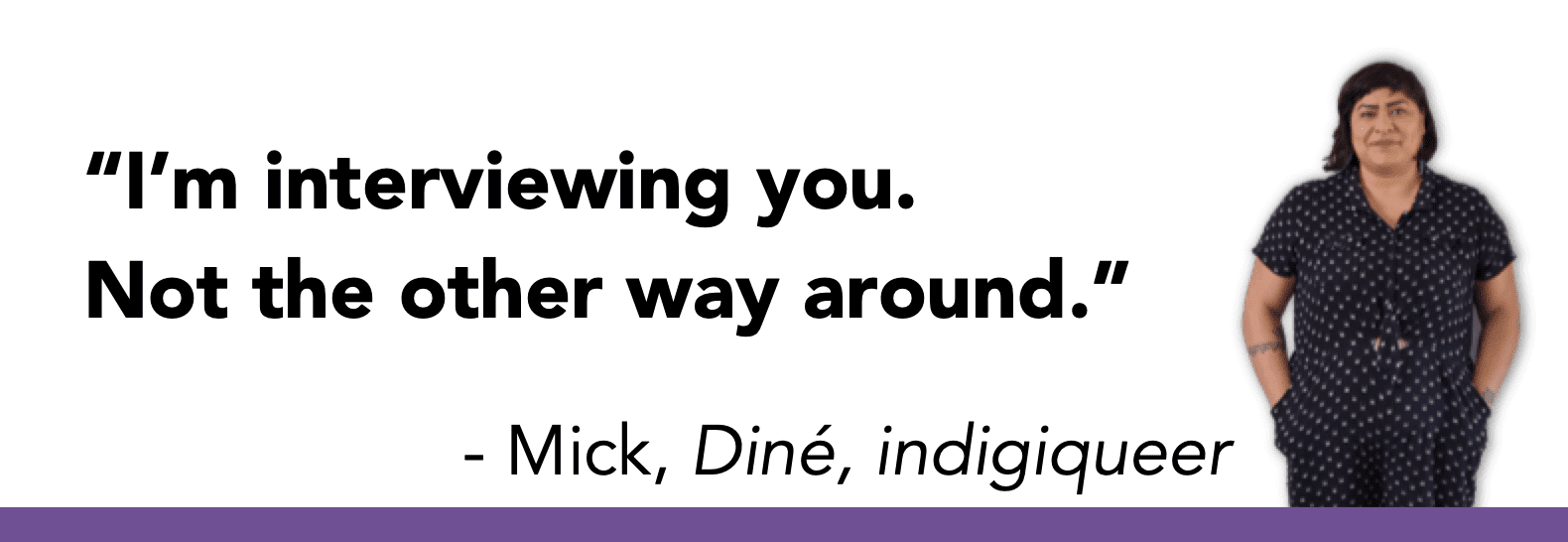
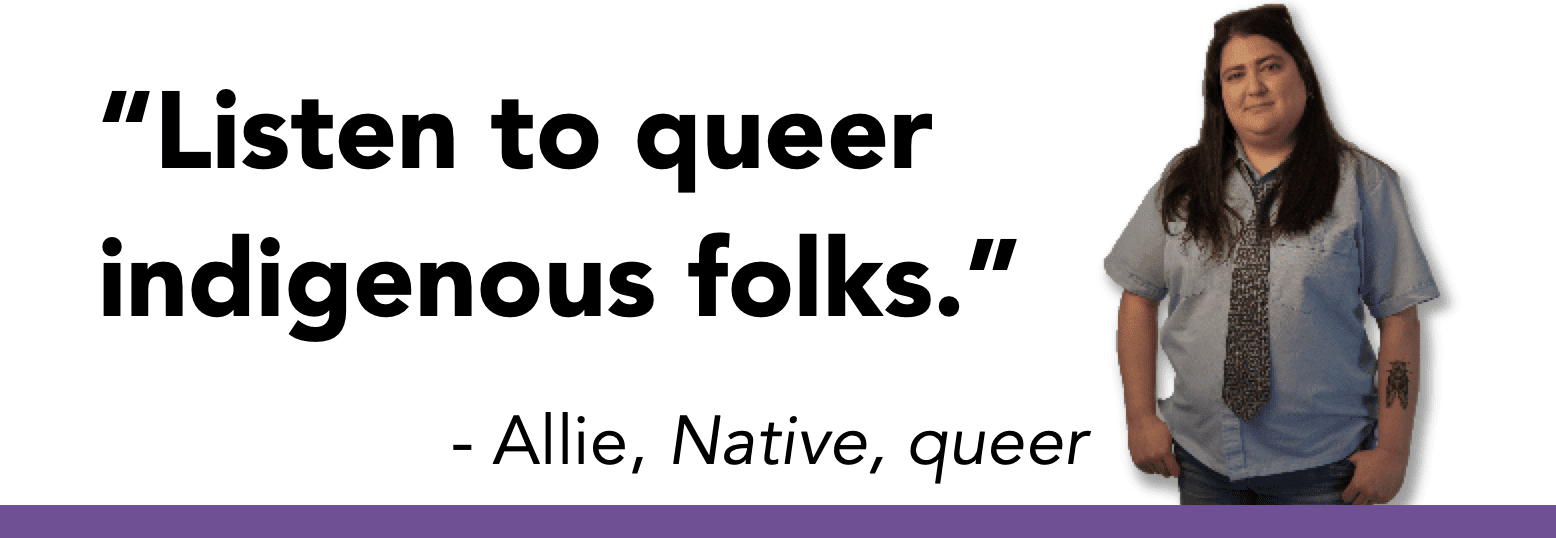
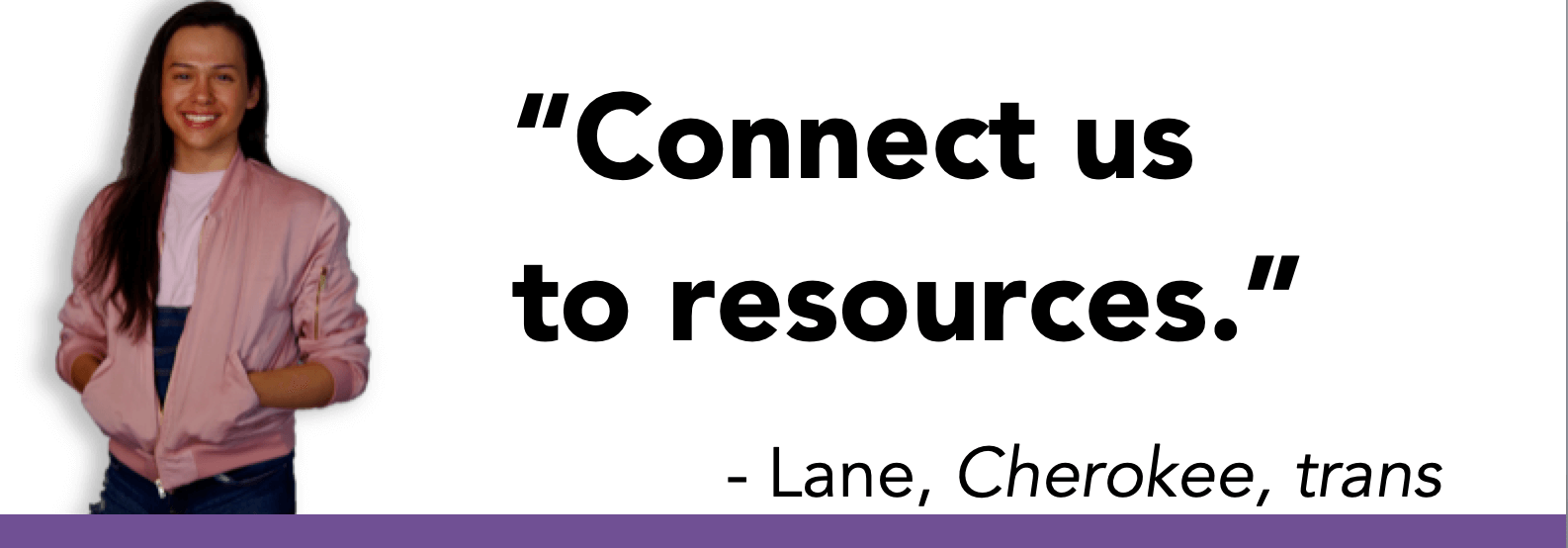
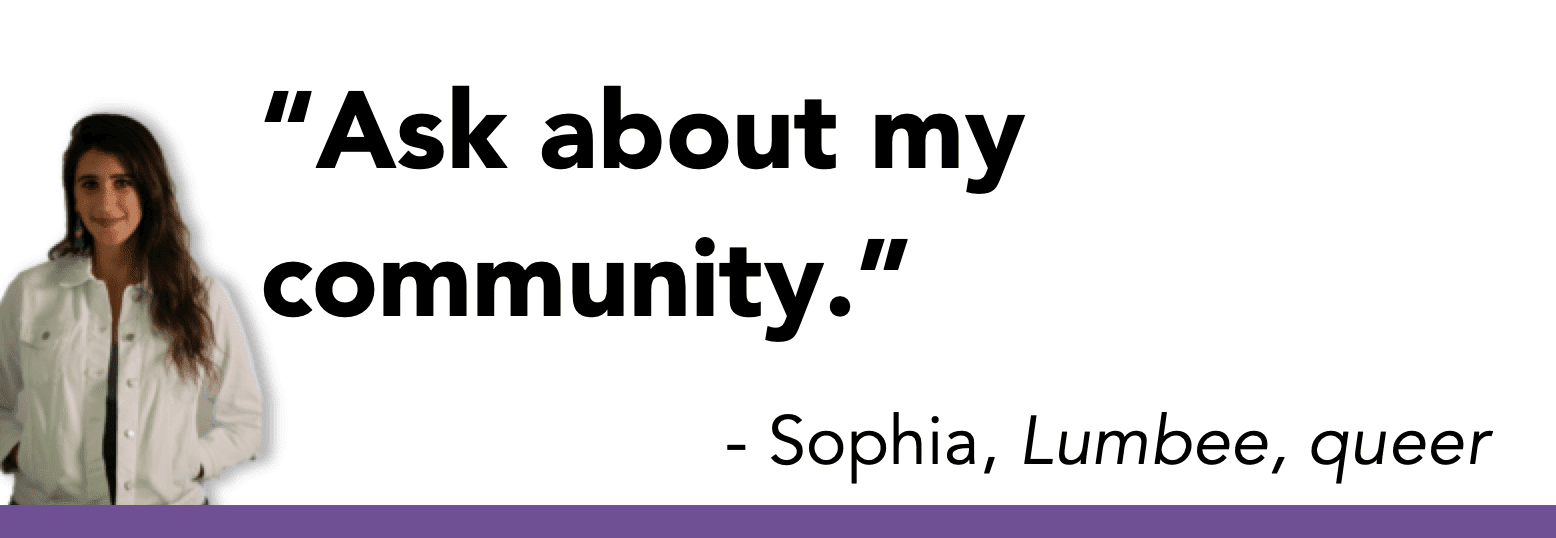
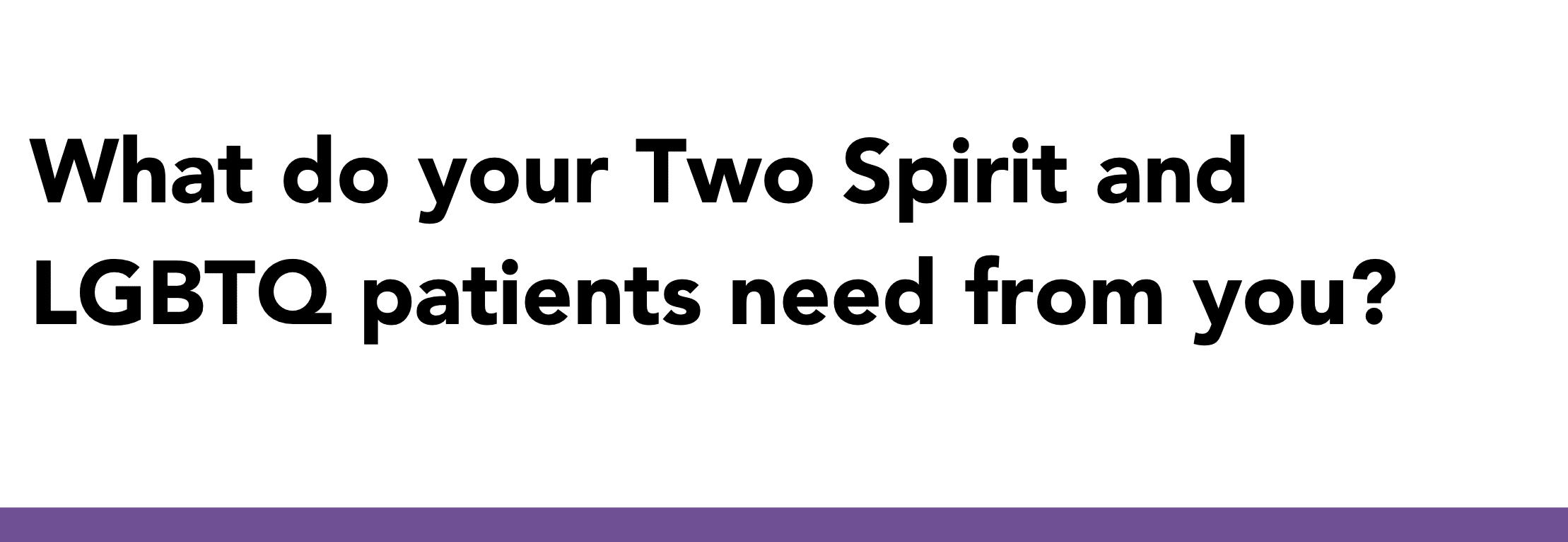
Our community is like a dreamcatcher. We need every strand.
Native Two Spirit and transgender youth need your support.
Providers describe healthcare barriers for Two Spirit and trans youth.
External Links
Approach to Care:
- IHS LGBT Resources for Providers
- Resources for care of lesbian, gay, bisexual, and transgender patients
- Guidelines for primary and gender-affirming care for transgender and gender non-confirming patients:
- Clinical guides for primary care
- HIV Care and Sexual Health Assessment
- E-learning course focused on providing culturally attuned sexual health care to 2SLGBTQ Native Americans
Collecting Sexual Orientation and Gender Identity Information:
- Do Ask Do Tell:
- A toolkit for collecting data on sexual orientation and gender identity in clinical settings.
- Beyond Men, Women, or Both
- A Comprehensive, LGBTQ-Inclusive, Implicit-Bias-Aware, Standardized-Patient-Based Sexual History Taking Curriculum
Gender-Affirming Treatment Options:
- Gender Affirming Endocrine Treatment Clinical Practice Guideline Summary:
- Evidence-based guideline for endocrine based therapies
- Healthy People 2030: Lesbian, Gay, Bisexual, and Transgender:
- Overview of related health topics and goals for the federal government until 2030.
- United States Transgender Survey 2015 for Alaska Native and American Indians:
- Comprehensive survey and analysis pertaining to all areas of life that impact the well-being of Native transgender people
- Assessing Health Provider Perspectives Regarding Barriers American Indian/Alaska Native Transgender and Two-Spirit Youth Face Accessing Healthcare
“I talked to an elder. He really helped me be more comfortable with myself.”
Is your child Two Spirit or transgender? Are they talking about transitioning?
A blog highlighting Two Spirit and LGBTQ+ stories.
Resources
- PFLAG:
- Community and advocacy organization for LGBTQ families, friends, and allies.
- Stand With Trans:
- Online platform for parents of trans youth to communicate with other parents as well as advocate for and support trans youth
- Indigenizing Love Toolkit:
- Activities and information to help you support Two Spirit and LGBTQ youth.
- ID Documents Center:
- Information to help you change gender on legal documents
- Legal and identity documents:
- Information about changing gender on legal identity documents
- When Healthcare Isn’t Caring
- Summary report on healthcare access and discrimination from Lambda Legal
- Transgender Law Center:
- Health and legal resources for transgender people and allies
- Tribal Equity Toolkit 3.0:
- A toolkit with sample tribal resolutions and codes for LGBTQ equality
There’s Heart Here
Follow three indigenous members of the Two Spirit and LGBTQ community as they journey toward self-acceptance, supportive healthcare, and communities that celebrate them.
To learn how you can support Two Spirit and LGBTQ individuals in your community, click the button below that best describes you.
See me. Stand with me.
An instructional video for healthcare providers seeking to create more supportive clinic environments for their Two Spirit and LGBTQ patients.
Becoming Jane Doe
Alara, an Athabaskan and Tlingit transwoman, found her gender identity through drag. Listen as she shares her journey to self-acceptance and supportive community.
Two Spirit and LGBTQ+ Blog
2021
December 11, 2024: Legislative and Policy Update
The Northwest Portland Area Indian Health Board (NPAIHB) conducts health policy and legislative analysis on health care and budget issues affecting Indian health programs. The… Continue Reading December 11, 2024: Legislative and Policy Update
November 19, 2024: Legislative and Policy Update
The Northwest Portland Area Indian Health Board (NPAIHB) conducts health policy and legislative analysis on health care and budget issues affecting Indian health programs. The… Continue Reading November 19, 2024: Legislative and Policy Update
2020
November 19, 2024: Legislative and Policy Update
The Northwest Portland Area Indian Health Board (NPAIHB) conducts health policy and legislative analysis on health care and budget issues affecting Indian health programs. The… Continue Reading November 19, 2024: Legislative and Policy Update
October 23, 2024: Legislative and Policy Update
The Northwest Portland Area Indian Health Board (NPAIHB) conducts health policy and legislative analysis on health care and budget issues affecting Indian health programs. The… Continue Reading October 23, 2024: Legislative and Policy Update
September 13, 2024: Legislative and Policy Update
The Northwest Portland Area Indian Health Board (NPAIHB) conducts health policy and legislative analysis on health care and budget issues affecting Indian health programs. The… Continue Reading September 13, 2024: Legislative and Policy Update
NARCH Summer Workshops Brings Native Students and Scholars Together in Portland
NARCH Summer Workshops Brings Native Students and Scholars Together in Portland By: NARCH Program Staff The Northwest Native American Research Center for Health had… Continue Reading NARCH Summer Workshops Brings Native Students and Scholars Together in Portland
Print Materials
“Why do we ask?” Folding Card
Pronouns
Sexual Orientation and Gender Identity
Print Materials
Celebrating Our Magic Toolkit
“Celebrating Our Magic” Toolkit is a culturally-specific resource for American Indian/Alaska Native communities and aims to provide resources for transgender and Two-Spirit youth, their relatives, and their healthcare providers.
To order free print copies of the Toolkit, contact Morgan at mthomas@npaihb.org.
See me. Stand with me.
Rack Cards
Two Spirit and LGBTQ
Two Spirit Talks Podcast
We’re Two Spirit and Indigenous LGBTQ+ people seeking stories and wisdom that reflect our experiences. Join us each month to hear directly from our community about ceremony, song, solidarity, and how we can build on the diverse teachings of our pasts to create a queer Indigenous future.

“We’re making our own history.”
Meet our hosts, Jack and Rick, through a discussion of their personal journeys toward acceptance, intentions for individual growth, and their shared hopes for this project.

“People need a portal.”
Marlon Fixico reminisces on his journey from a childhood shaped by his elders to his roles as a Two Spirit activist, organizer, and — now — elder himself.

“I go into the wilderness to heal.”
Vivian Mork, Tlingit elder, illuminates the innate relationships between nature, language, sexuality, and well-being — and how the damage of climate change threatens these connections.
